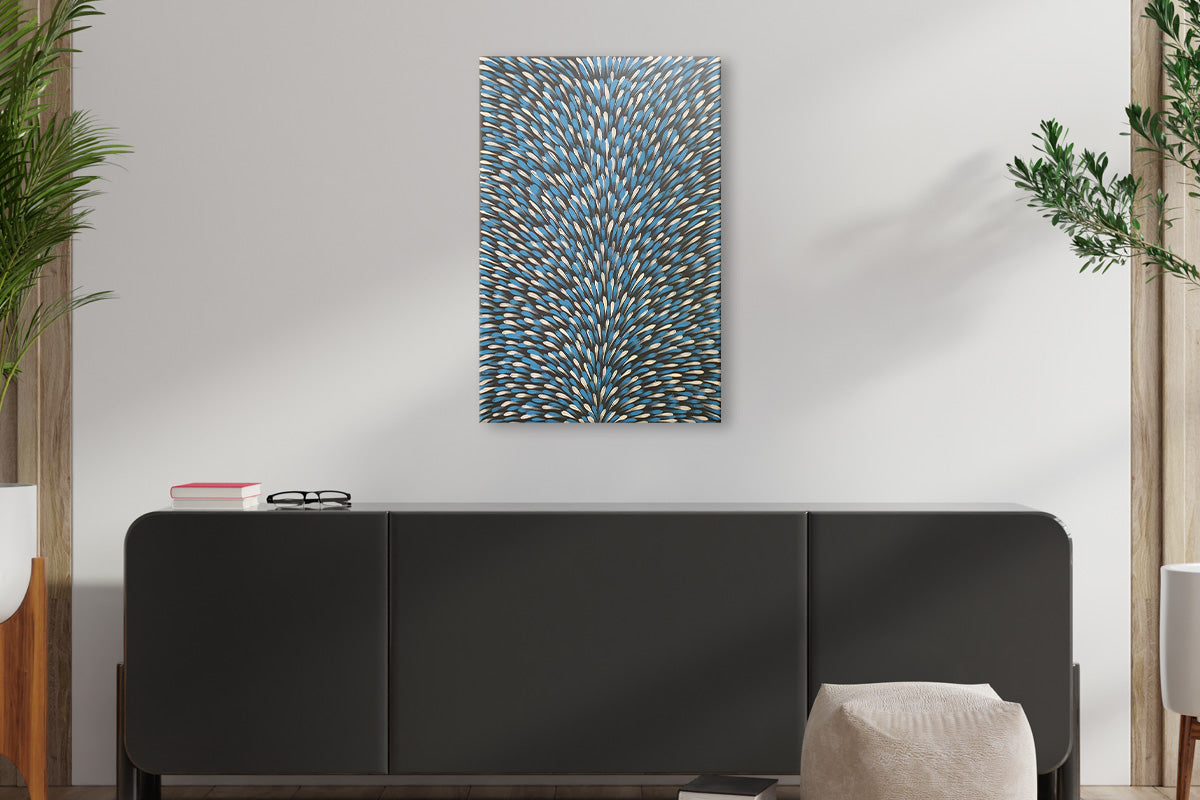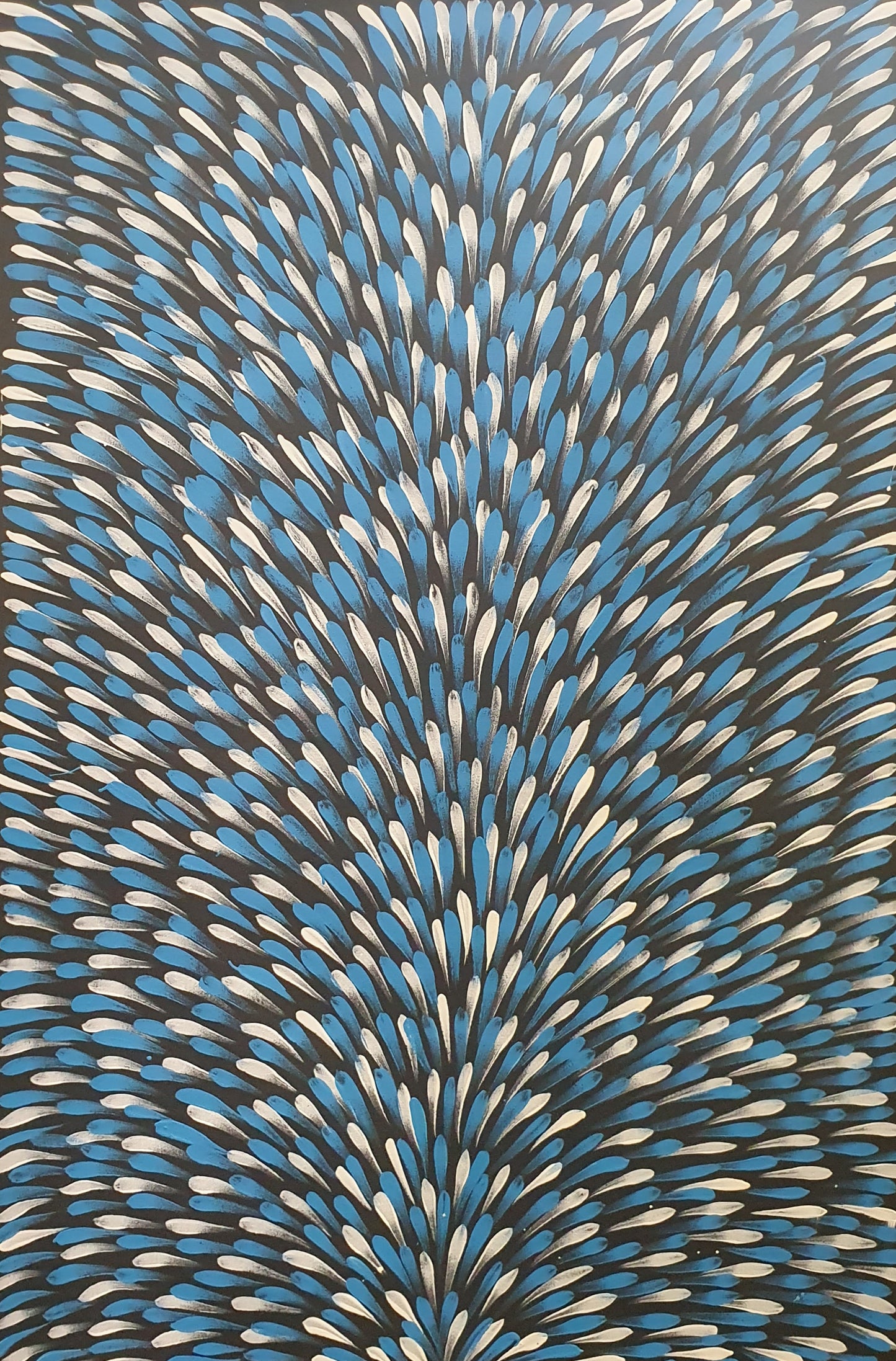Aboriginal Painting - Bush Medicine Leaves
Aboriginal Painting - Bush Medicine Leaves
Gloria Petyarre
SKU:Cat.n. GTP 4410
Couldn't load pickup availability
Aboriginal Painting Title: Bush Medicine Leaves
Aboriginal Artist: Gloria Petyarre
Size: 60 x 90 + border cm
Medium: Acrylic on canvas
Authenticity:
COA and pictures of the artist holding and signing her work will be provided.
Story
The collecting of bush medicine leaves has been an essential part of traditional Aboriginal life and culture for generations. This practice, often part of the secret world of women’s business, involves gathering leaves from many different native plants for their medicinal uses.
The Role of Anmatyerre Women in Bush Medicine
Women from the Anmatyerre Region play a crucial role in this tradition by gathering leaves used in traditional bush medicines. These leaves are boiled and mashed with animal fats, such as emu or kangaroo, to create a medicinal poultice. This poultice, which can last for many months, is applied to the skin to heal a variety of ailments, including:
- Bites and wounds
- Skin infections and rashes
- Skin cancer
The leaves are also used to make healing teas by steeping them in hot water. These teas can treat:
- Headaches
- Coughs and colds
- Fevers
- Diarrhea
- Aches and pains
- Stings
- Sore eyes
- Toothache
The Historical Significance of Bush Medicine
The use of native plants for medicinal purposes by Aboriginal people is a practice that dates back thousands of years. As one of the oldest peoples in the world, the ancient use of native botanicals for bush medicine is a fascinating topic worth exploring.
Understanding and Appreciating Aboriginal Bush Medicine
The history of Aboriginal bush medicine is essential for appreciating the depth of Indigenous culture. Australian tropical plants have provided a rich source of food (bush food) and medicine to the first Australians, who have lived on this land for over 50,000 years.
A Holistic Approach to Healing
Aboriginal culture traditionally uses bush medicine as part of a holistic approach to healing and wellness. This practice is a crucial pillar of ancient traditions that tie Indigenous culture to the land. It’s important to acknowledge and respect these traditions, which are vital to the cultural heritage of Aboriginal people.
Sharing Traditional Knowledge
Today, First Nation people strive to walk in two worlds, sharing traditional knowledge and healing practices. This sharing not only helps in physical healing but also fosters stronger relationships and community ties.
Explore the rich history and cultural significance of Aboriginal bush medicine to gain a deeper understanding of Indigenous wisdom and the vital connection between land and health.
Share




